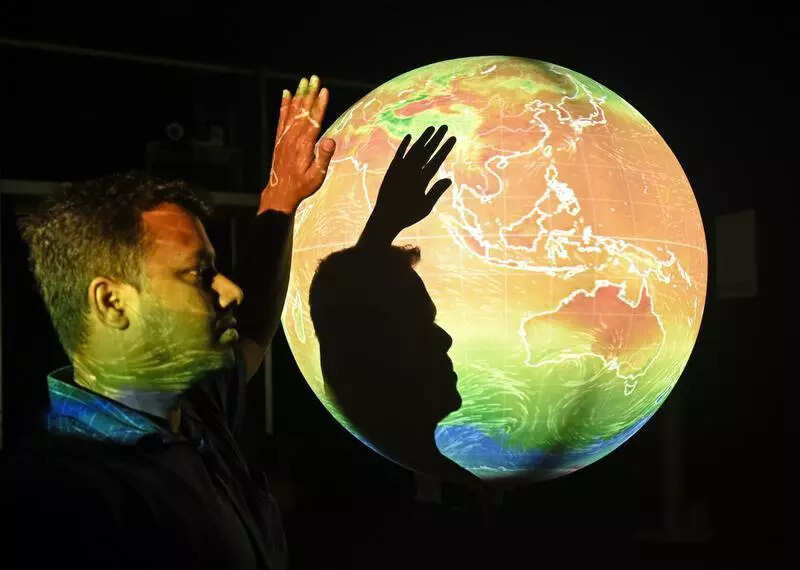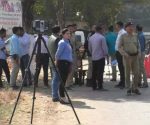City science centre set to make ‘knowledge on sphere’ oeprational | Bhubaneswar News

Bhubaneswar: Regional Science Centre (RSC) here will become the first institute in India to house an innovative and state-of-the-art scientific visualisation system called ‘Knowledge on Sphere‘ (KOS).
The system features a suspended globe, measuring 4-6 ft in diameter and weighing 370 kg, which projects dynamic content in 360 degrees. It visualises complex data related to astronomy, geography, climate change and environmental science.
A D Choudhary, director general of National Council of Science Museums (NCSM), said the Rs 1-crore indigenous installation, developed by a team of five Indian engineers and scientists over a year, is currently undergoing final testing and will be operational by month-end.
“This is a first-of-its-kind innovation in India by NCSM,” said Choudhary. “KOS will serve as a dynamic educational tool, helping students and young minds understand global phenomena through immersive visual experiences.”
Kapil Jain, head of RSC Bhubaneswar, said, “The dry runs have been promising, and we’re confident that KOS will significantly enhance our learning ecosystem. It’s not just a display — it’s an immersive learning experience.”
To ensure smooth operation, the centre has deployed four specially trained technicians and established a dedicated hall equipped with specialised hardware, software and projection systems.
“RSC Bhubaneswar was selected for the pioneering initiative due to its popularity among students and commitment to science education outreach,” Choudhary said.
Following the successful launch in the city, NCSM officials indicated that similar systems may be installed at other science centres across the country. The initiative aligns with India’s growing focus on science communication and digital innovation in education, bringing it up to global standards.
The system features a suspended globe, measuring 4-6 ft in diameter and weighing 370 kg, which projects dynamic content in 360 degrees. It visualises complex data related to astronomy, geography, climate change and environmental science.
A D Choudhary, director general of National Council of Science Museums (NCSM), said the Rs 1-crore indigenous installation, developed by a team of five Indian engineers and scientists over a year, is currently undergoing final testing and will be operational by month-end.
“This is a first-of-its-kind innovation in India by NCSM,” said Choudhary. “KOS will serve as a dynamic educational tool, helping students and young minds understand global phenomena through immersive visual experiences.”
Kapil Jain, head of RSC Bhubaneswar, said, “The dry runs have been promising, and we’re confident that KOS will significantly enhance our learning ecosystem. It’s not just a display — it’s an immersive learning experience.”
To ensure smooth operation, the centre has deployed four specially trained technicians and established a dedicated hall equipped with specialised hardware, software and projection systems.
“RSC Bhubaneswar was selected for the pioneering initiative due to its popularity among students and commitment to science education outreach,” Choudhary said.
Following the successful launch in the city, NCSM officials indicated that similar systems may be installed at other science centres across the country. The initiative aligns with India’s growing focus on science communication and digital innovation in education, bringing it up to global standards.
















